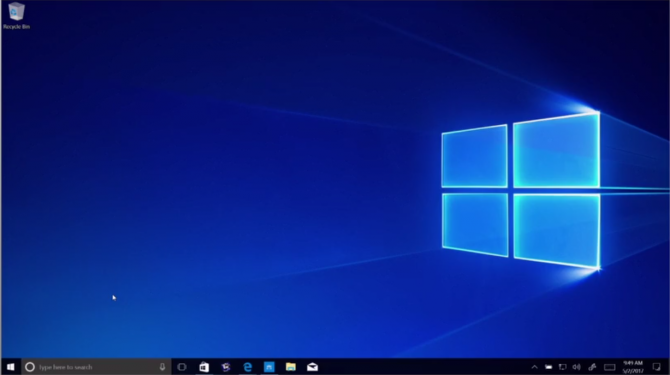Details Emerge About Microsoft's 'Lite' Operating System
Microsoft appears to be planning a lot of changes to Windows. Not in upcoming versions of Windows 10 (previews of those builds have been relatively tame of late) but in other iterations of the platform. The latest? Well, it's reportedly called "Lite," and it's supposed to help Microsoft compete with Chrome OS. Now more details about Microsoft's plans for Lite have emerged.
Petri's Brad Sams reported on Lite in December 2018. He's followed up that initial report with another one claiming that Microsoft is planning to use the operating system in two of its upcoming devices, Centaurus and Pegasus, rather than using a Windows-branded platform. (Apparently this Lite platform is so skinny it can't bear the weight of the Windows name.)
Centaurus is said to be a dual-screen device, while Pegasus refers to "many variations of different styles of laptops running the OS," according to Sams. The former would allow Microsoft to attempt to popularize a new-ish category of devices; the latter would follow the company's existing business model of licensing its operating systems to hardware partners.
Sams also shared a few details about Lite itself:
"When it comes to using Lite, there’s a good chance that it will only have a vague familiarity with what we know today as Windows from a UI perspective. It will be significantly simplified and targeted at a simpler use-case; you won’t be running Lite OS on a desktop. Further, the UI will feature windowing but much like iOS and ChromeOS, it’s more of a ‘one app’ at a time experience; for multi-tasking and productivity, Windows 10 will always be the way to go."
The operating system is said to be built on top of Windows Core OS. Which, much like Lite, hasn't actually been revealed by Microsoft. It has been leaked, though. Windows Core OS will reportedly be used to bring Windows to all kinds of devices, and while we originally thought they'd all run "Windows," if Lite keeps its name it could mean Microsoft plans to use different branding based on where the operating system's being used.
But that all depends on what Microsoft has planned. It's starting to seem like either the company doesn't know or the leaks emerging from Redmond aren't exactly reliable. (Or a bit of both.) First we thought Microsoft was working on an Andromeda device, then we heard it put Andromeda on hold to work on Centaurus, and now it seems the company's planning a template for its Lite hardware partners to follow with Pegasus.
Get Tom's Hardware's best news and in-depth reviews, straight to your inbox.
One thing is clear: Microsoft is planning big changes to Windows. Combine those plans with the company's ambitions for Xbox Live, Project xCloud, and other efforts and it definitely seems like Microsoft isn't content to ship new versions of Windows 10 (months late) for the foreseeable future.

Nathaniel Mott is a freelance news and features writer for Tom's Hardware US, covering breaking news, security, and the silliest aspects of the tech industry.
